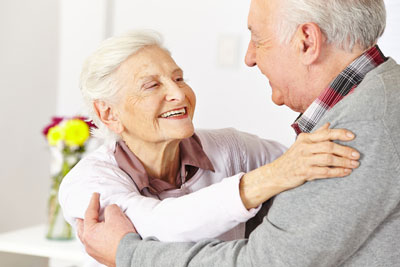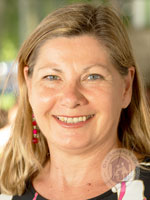Dementia Care Music & Memory with Daughterly Care
Daughterly Care is very proud to be the first community in home aged care provider in Sydney accredited with the Music and Memory Program by the Arts and Health Institute. We have specialised in providing in home dementia care for over 27 years and our 24 hour Nurses and Hourly Caregivers and Live in Carers routinely use our private care client’s favourite music to help elders connect with memories and emotions, and unlock a range and ease of movement which might otherwise be accessible.
Using music that is much loved by our in home care clients, our Hourly Caregivers and Live in Carers consistently achieve results that are nothing short of miraculous, offering:
- a proven way to bring pleasure to a person isolated within the confines of mid to advanced dementia;
- an enjoyable and fulfilling activity for a person with limited mobility, reducing agitation and sundowning;
- enhanced social engagement, improving the quality of life for the elder, family and friends;
- relief from physical and mental issues, lessening or even eliminating reliance on anti-anxiety medications;
- an opportunity to improve physical movement and exercise through dance;
- evidence based research found that singing in a group produced twice the Oxytocin levels*, the happy hormone, as spending time with friends; and
- a way of connecting and improving engagement on other levels e.g. talking and movement etc.

One of our Caregivers who uses music with clients in nursing homes
Some of our clients are in nursing homes and we visit to help them eat their meal, assist them to walk or provide companionship. One of our beautiful Caregivers who was on one such service shared this feedback.
“I love to do music therapy with my iPad and/or iPod and I have a huge range of music that the elderly and those living with dementia usually love. Any special requests I don’t have can be download instantly from iTunes. My specialty is to help people (living with dementia) who are unresponsive.
Recently I have had wonderful results when I was visiting a nursing home. One male resident started talking and singing, amazing the staff because they had never seen him talk or sing before. A female resident started singing like she’d been singing all her life. She was previously non-responsive. Another female resident was totally confused and unable to understand anything we were saying suddenly became lucid and joined in with our singing during my visit.”
Working with clients in the familiar surrounds of their own home, our Hourly Caregivers and Live in Carers use much-loved tunes to reinforce identity, deepen personal communication and reduce the potentially challenging behaviours of elders living with dementia.
Case Study: Jack the Jazz Man
Daughterly Care had the privilege of caring for Jack, a life-long jazz buff who played Jazz music at his local community radio for years. Since his diagnosis of mid-stage dementia, Jack had indicated to family members he was “over music” so when asked if he would like to listen to music he always replied “no”.
Daughterly Care chose Kim as Jack’s in-home care Caregiver. Kim has a great love of music, plays in a band and enjoys singing and playing musical instruments. Kim, like all Daughterly Care Caregivers, has seen many of her clients transformed by the connective power of music.

Click here to view Kim’s profile
“The first time I took Jack for a walk I had to hold on to his arm to stop him from falling over on the footpath as he was leaning significantly to the right. He had lost his sense of balance and I was wondering how I was going to get him home without him falling over. It wasn’t the first time I had encountered this in a client, so I knew just what to do.
When we got home I put on a CD of the Nat King Cole Jazz Quartet, one of Jack’s old favourites. Almost immediately, he followed my lead and began to tap his hand on the kitchen bench and sway his upper body in time with the song. It wasn’t long before he was on his feet, shimmying to the left and right and drumming his hands loudly and very happily on the bench.
Jack’s balance was perfect and he had completely let go of the bench as he danced away, his whole being deeply rapt in the movement of the music. Across the kitchen his wife stood, beaming with joy. It had been a long time since she had seen her husband dance. A very long time.
Jack’s wife and other clients’ spouses often observe how we relate to private care clients and pick up tips. Kim explained to Jack’s wife that music was a tool for her to use to activate Jack and get him going and that he still felt a lot of joy listening to music. Importantly she realised that it was pointless asking Jack if he wanted to listen to music, instead she was better off just putting the music on and encouraging Jack to beat to the rhythm, dance and do exercises.

The latest neuro-scientific research^ confirms that music uses many different parts of the brain and therefore even if one part of the brain is damaged by a form of dementia, music and memories associated with that music, can still be accessed by other parts of the brain that are working well. Therefore music appears to bypass damaged parts of the brain and revive elders’ long held memories and emotions associated with that specific music.
For more information on how music benefits elders living with dementia:
Sources:
^Current Research by MusicandMemory.org
*ABC Catalyst producers worked with Professor Ian Wright, University of Wollongong, to reproduce a German Study which was originally published in 2014. This showed a powerful physiological effect of music on social bonding.
Discover how we care for people living with dementia:
We are dementia care specialists
Music and memory for people living with dementia
Dementia Care Music and Memory

